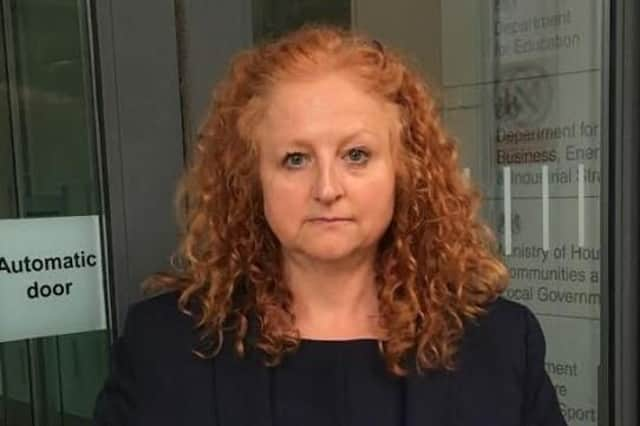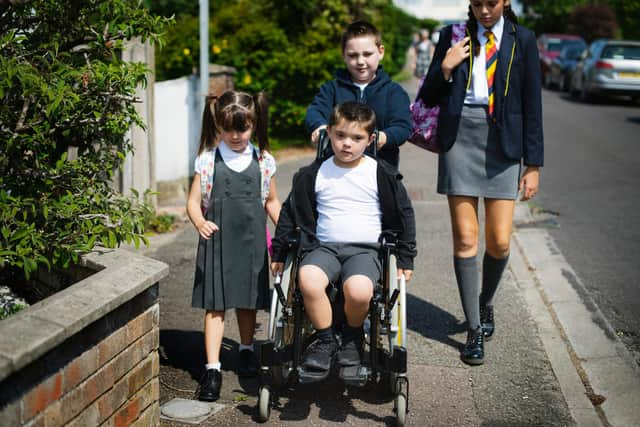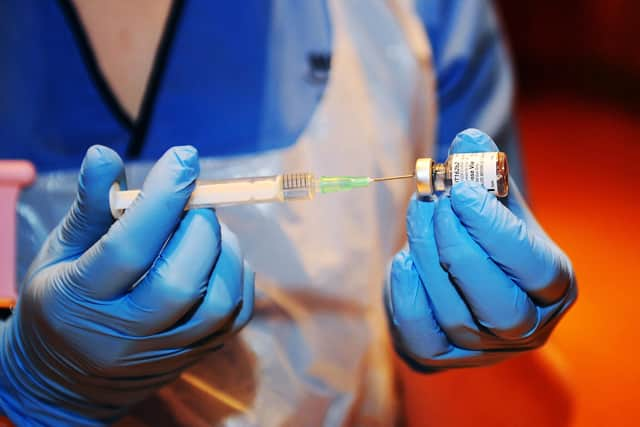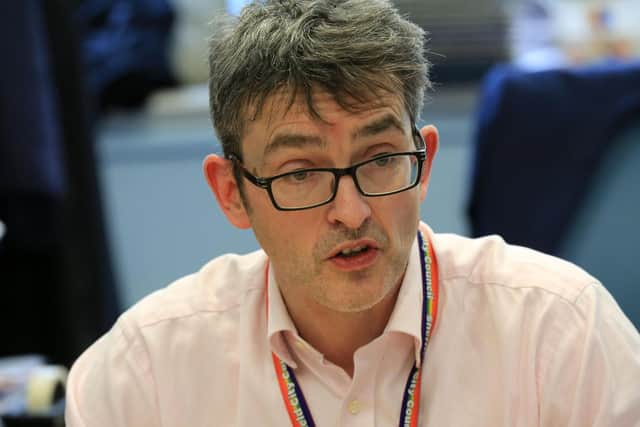Covid has exposed disability failings


In March 2020, we saw Government, other public authorities and some health services react in knee-jerk fashion with regard to their intentions towards disabled people, including children and young people – forcing them on to a path of differential and less favourable treatment, sometimes clearly discriminatory.
This was no more evident than when do-not-attempt-resuscitation (DNAR) notices were enforced upon disabled people in the event of serious illness, with widespread deployment in some residential settings, .
Advertisement
Hide AdAdvertisement
Hide AdWe at Equalities and Human Rights UK and others in the disability equality field felt obliged to challenge this, but in this latest lockdown DNARs have reared their ugly head once again.


My colleagues and I have been run ragged objecting to their use as active treatment was being taken away from patients.
We have also raised objections over the tragic Covid-related deaths of people with learning impairments or disabilities. Not everyone in that group was being prioritised for the vaccine, despite them being more than six times more likely to die from coronavirus, and at younger ages.
Those with a severe or profound learning impairment or disability were prioritised in group six, whereas adults with Down’s syndrome were in the higher group four.
Advertisement
Hide AdAdvertisement
Hide AdBut those with a mild to moderate impairment were not prioritised at all, even though official data showed they accounted for 65 per cent of all Covid deaths among people with learning disabilities in the first wave.


Alongside Sparkle Sheffield, Autism Union, Mencap and others, we made an urgent call for all people with a learning impairments or disabilities to be prioritised, preventing needless loss of lives. The Government has belatedly listened to these pleas for fairness.
We have separately had to lobby Government to amend its practice after making none of the essential adaptations to Covid testing and other related interventions for people with autism and sensory disorders. We have now been advised this has been reviewed and new guidance is on its way.
In addition, since last March, I have also supported a range of families and groups from the disability community pushing for judicial review of decisions taken by Government and other public authorities, in particular how guidance and practice on school attendance failed to have due regard for disabled people’s needs and adaptation requirements.
Advertisement
Hide AdAdvertisement
Hide AdWe have also challenged threats being made towards families with disabled children who, when adhering to Government isolation notices, were being faced with extortionate fines if their children did not attend school. In some cases disabled children were being coded as absent even when they had permission, but non-disabled children were not.


Thankfully our challenge has resulted in a more pragmatic approach being taken across the nation.
Public authorities have been seen to renege upon their duties set out in disabled children’s Education, Health and Care plans. This has been an ongoing battle for us as some councils have been wrongfully misinterpreting the leeway in Covid legislation, resulting in them withdrawing or seriously reducing special educational needs provision.
At times in all this, I have called upon Sheffield’s director of public health Greg Fell, and director of education Andrew Jones Directo, to ask that they, and Sheffield City Council, get behind our advocacy.
Advertisement
Hide AdAdvertisement
Hide AdI must commend them for doing so, when local authorities elsewhere stood back, presumably not wanting to rock the central Government boat.
It should not be the case that organisations like ours have to remind, lobby or even legally challenge Government to do the right things by and for disabled people. We should not have to stop harms arising from their failures.